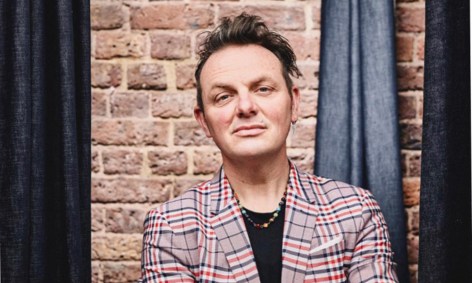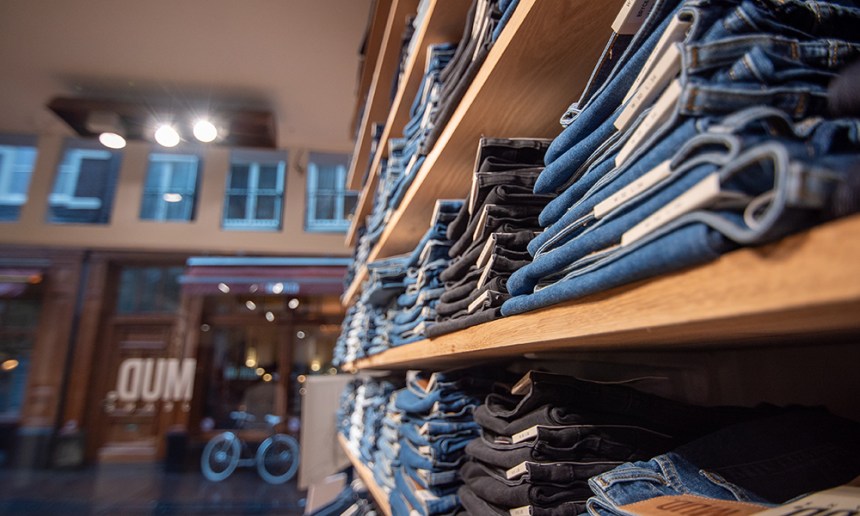Host of the Festival of Circular Economy 2025 and owner of sustainable innovation studio Ape, Mark Shayler, explains why a circular future has arrived by examining two successful circular economy businesses.
The future is circular we hear – and it is. It offers a vital shift in how we manage resources and stimulate economic growth, especially at a time when resource scarcity is becoming more pressing.

Globally we currently wastes more than 90% of the materials we extract, all that circularity attempts to do is to stop the economy leaking.
The circular model reduces our dependence on finite resources, helping to mitigate the economic risks associated with supply shortages and price volatility.
For instance, transitioning to a circular economy could unlock up to $4.5 trillion in economic benefits by 2030.
This approach not only supports environmental sustainability but also offers economic opportunities by enhancing innovation, reducing waste management costs, and creating new markets for recycled materials.
Let’s take a look at a couple of inspiring organisations who have developed successful circular economy businesses, brought them to market, and are now scaling them.
Toast Brewing – Brewing Beer with Surplus Bread (UK)

Toast Brewing uses surplus bread to brew beer, exemplifying the circular economy by turning food waste into a product.
Founded in the UK in 2015, Toast partners with bakeries to collect unsold bread to replace a portion of barley in the brewing process.
The results is an award-winning craft beer that not only reduces waste but also lowers raw material costs – using 25% less barley than typical brews.
Notably, all profits from Toast are donated to charities fixing the food system, aligning economic success with social impact.
This innovative business model demonstrates how a business can generate revenue and tackle waste simultaneously using a circular economy approach.
Key impacts in the last five years include:
- Waste Diversion: Saved over 3.3 million slices of surplus bread from going to waste since they began brewing in 2016, which saved bakeries disposal costs and created value from a would-be waste stream.
- Resource Savings: By using surplus bread, Toast also avoided 5.3 tCO2e in emissions.
- Economic & Social Impact: Toast donated £116,000 (as of 2024) to food waste charities.
It’s also important to make a great beer not just a waste beer, Toast Brewing has won numerous taste awards and is a firm favourite in our house.
Toast has built a viable brand carried by major retailers, and has a growing customer base of ‘planet-friendly’ beer drinkers and a small but passionate team, proving the approach makes business sense.
MUD Jeans – Leasing Denim for Circular Fashion

MUD Jeans is a Dutch denim brand pioneering a lease model to keep jeans in circulation for longer.
The company’s trademark ‘Lease A Jeans’ programme lets customers rent jeans for a monthly fee instead of buying them outright.
This service-based model ensures MUD Jeans retains ownership of raw materials, enabling efficient recycling and waste reduction, but also quality.
It also fosters strong customer loyalty (free repairs are provided during the lease) and a steady revenue stream.
Over the past five years, the company has successfully scaled this model while maintaining a focus on sustainability and fair labour.
Key outcomes include:
- Business Performance: The circular model has gained traction and they now have over 5,000 people leasing jeans – this is around 50% of their customers.
- Environmental Impact: Each MUD jeans results in roughly 93% less water use and 74% lower CO₂ emissions compared to a conventional pair of jeans. For example, an average industry pair may require around 7,000 litres of water, whereas MUD reduce this to around 460 litres.
Overall, the company reports a 42% year-on-year reduction in its corporate carbon emissions in 2022. By using up to 40% post-consumer recycled cotton in each product, MUD Jeans also diverts textile waste and reduces demand for virgin cotton.
Celebrating the circular economy in action
What I love about these two examples is that they are centred around great products first-and-foremost. You would buy them because the products are great rather than circular.
They prove that circular economy principles – from product design to end-of-life recovery – can enhance profitability, innovation, and positive impact in parallel.
As more companies adopt such models, we move closer to a regenerative, waste-free future and at the same time show how rethinking the lifecycle of products can create economic value.
So put on your jeans and grab a beer (zero ABV available too).
The post Toast Brewing & MUD Jeans: Making circular work for business appeared first on Circular Online.

